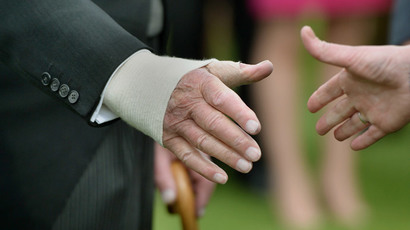'Happy heart syndrome': Life's greatest events can actually break your heart, study says

The phrase “broken heart” is often muttered in relation to sad events, but a new study says that life's greatest moments can lead to the same negative heart condition associated with tragedy. In its worst cases, it can lead to heart attack and death.
Takotsubo syndrome (TTS) involves a sudden weakening of the heart muscles, which causes the left ventricle – the chamber which pushes oxygen-rich blood through the body – to abnormally balloon out at the bottom.
Although it has long been known that an unexpected, negative emotional shock – such as the death of a spouse or an intense argument – can lead to the condition, it now appears that intensely happy events can cause the same result.
That conclusion comes after a team of 16 researchers, led by Christian Templin and Jelena Ghadri of University Hospital Zurich, examined a global registry of TTS cases and found repeated evidence of “happy heart syndrome.”
The database, which was set up in 2011, collected 1,750 cases from 25 hospitals over the course of five years. Following an examination of the data, the researchers found that emotional jolts were responsible for 485 of those cases.
Although 96 percent of those individuals had suffered a sad or stressful event, four percent – 20 individuals – had experienced happy heart syndrome.
"We have shown that the triggers for TTS can be more varied than previously thought," Ghadri said in a statement. "The disease can be preceded by positive emotions too."
The happy events that were found to have triggered TTS included a birthday party, a wedding, a surprise farewell celebration, a favorite rugby team winning a game, and the birth of a grandchild. However, none of those cases proved fatal.
An overwhelming majority of sufferers – 95 percent – in the “broken heart” and “happy heart” groups were women, most of whom were in their mid-to-late 60s.
"We still do not know why women are predominately affected by the Takotsubo syndrome," Ghadri told AFP. "We can only speculate that the hormonal state - namely estrogen - might play a role in the disease mechanism."
Scientists are still trying to fully understand TTS, which is believed to involve links between psychological stimuli, the brain, and the cardiovascular system.
Discovered by Japanese researchers, takotsubo syndrome gets its name from a traditional Japanese octopus trap, which is said to resemble a swollen heart chamber.












